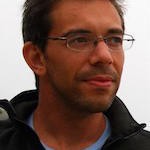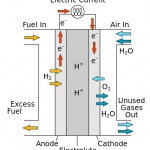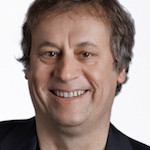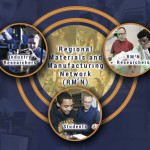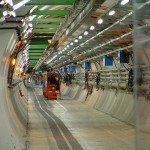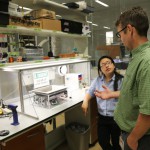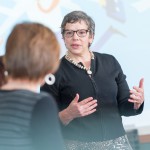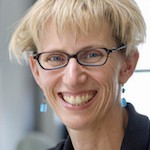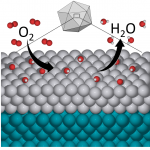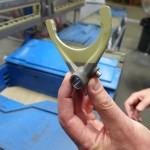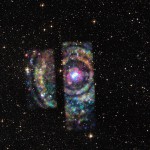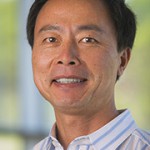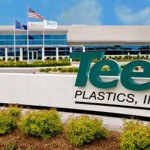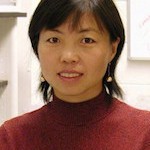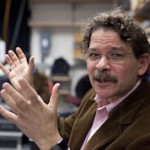Category Science & Technology
Words jump-start vision, psychologist’s study shows
Cognitive scientists have come to view the brain as a prediction machine, constantly comparing what is happening around us to expectations based on experience - and considering what should happen next.
Molecular fuel cell catalysts hold promise for efficient energy storage
In the quest for better, less expensive ways to store and use energy, platinum and other precious metals play an important role. They serve as catalysts to propel the most efficient fuel cells, but they are costly and rare.
Nanoscale light-emitting device has big profile
University of Wisconsin–Madison engineers have created a nanoscale device that can emit light as powerfully as an object 10,000 times its size. It's an advance that could have huge implications for everything from photography to solar power.
As giant physics machine restarts, essential role for UW continues
University of Wisconsin–Madison takes pride in the process of "sifting and winnowing, by which alone the truth can be found." So it makes poetic sense, says Wesley Smith, that he, as a UW–Madison physicist, is overseeing the ultrafast sifting and winnowing procedure for the CMS (compact muon solenoid) experiment, one of two general purpose detectors at history's largest scientific project, the Large Hadron Collider.
Gift to Morgridge Institute ‘Fab Lab’ to boost medical device innovations
A gift to the Morgridge Institute for Research will help spur medical device innovations coming directly from doctors - the people who know firsthand where the advances are needed.
UW-Madison collaboration promotes well-being in the workplace
Standing in front of a room of business professionals, Jill McDermott shares a number: two quadrillion - the number of megabytes of information broadcast daily. She pauses to let the audience reflect on how this inundation of information contributes to distractions in the workplace that can chip away at a person's well-being and ability to respond to daily challenges, whether it's giving projects the attention they deserve or shaking off a setback or conflict with a colleague.
Protein Suggests a New Strategy to Thwart Infection
The newfound ability of a protein of the intestines and lungs to distinguish between human cells and the cells of bacterial invaders could underpin new strategies to fight infections.
One hot idea: Thermal spray makes metal better
A company spawned by an experiment on lawn mower blades has mushroomed into a national leader in high-temperature coatings that alter the surface properties of metal.
Neutron star’s echoes give astronomers a new measuring stick
In late 2013, when the neutron star at the heart of one of our galaxy’s oddest supernovae gave off a massive burst of X-rays, the resulting echoes — created when the X-rays bounced off clouds of dust in interstellar space — yielded a surprising new measuring stick for astronomers.
Stem cell expert: Bart Starr treatment shows need for rigorous trials in U.S.
The news that legendary Green Bay Packer quarterback Bart Starr has undergone stem cell therapy to recover from a stroke has raised the profile for a promising but unproven regenerative treatment intended to replace dead neurons with live ones.
Petri dish tumor test could personalize drug therapy for cancer patients
In a highly successful, first-of-its-kind endeavor, a multidisciplinary team of University of Wisconsin–Madison researchers has created a "tumor in a dish:" an ex vivo microenvironment that can accurately anticipate a multiple myeloma patient's response to a drug.
Fragile X proteins involved in proper neuron development
Fragile X syndrome is the most common inherited intellectual disability and the greatest single genetic contributor to autism. Unlocking the mechanisms behind fragile X could make important revelations about the brain.
Drinkwater, Greenberg to fill research leadership posts
Norman Drinkwater, a UW–Madison professor of oncology, and Jan Greenberg, a UW–Madison professor of social work, have been named associate vice chancellors in the Office of Research and Graduate Education. Greenberg will lead the area of social studies while Drinkwater will lead the biological sciences.
Study redefines role of estrogen in cervical cancer
Scientists have prior evidence that the hormone estrogen is a major driver in the growth of cervical cancer, but a new study examining genetic profiles of 128 clinical cases reached a surprising conclusion: Estrogen receptors all but vanish in cervical cancer tumors.
Navigating multiple myeloma with ‘Google Maps’ for the cancer genome
In some ways, studying the genetics of cancer has been like examining the individual tiles on a mosaic, says David C. Schwartz, a professor of genetics and chemistry at the University of Wisconsin–Madison. To make his point, he brings his face close to the table where he sits - his mosaic for the purpose of illustration - and describes the details of each imaginary tile.

